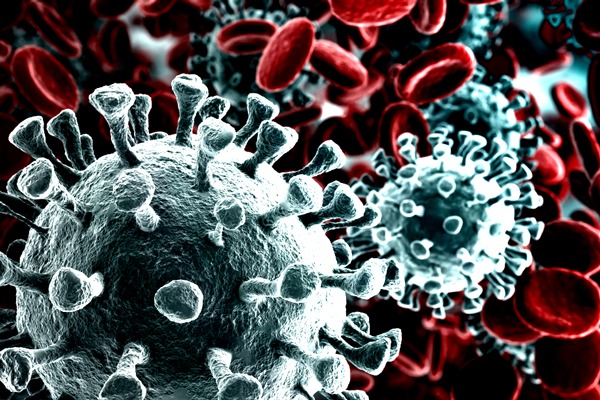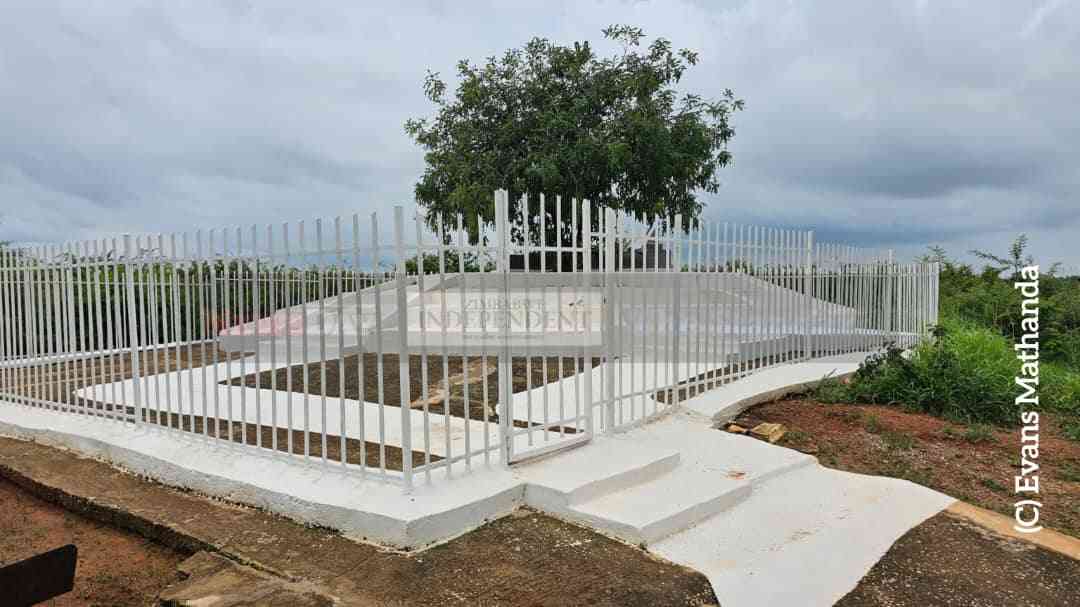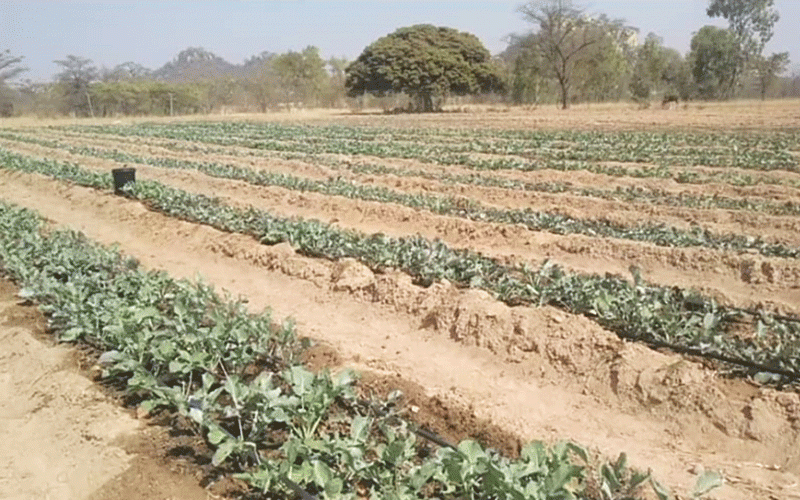
ALMOST two weeks after Zimbabwe recorded its first coronavirus (COVID-19) fatality, the country remains ill-equipped to effectively deal with the outbreak should it turn virulent after eight cases have been recorded given that the institutions tasked with dealing with the disease remain largely dysfunctional.
BY PHILLIP CHIDAVAENZI/PHYLLIS MBANJE
Lack of investment in the health sector over the years — with politicians and the well-heeled resorting to foreign countries for treatment and other health services — has left the country in sixes and sevens regarding the possible containment of the outbreak.
Wilkins Infectious Diseases Hospital in Harare and Thorngrove Hospital in Bulawayo, which have been tasked with the responsibility of handling COVID-19 cases have been found wanting.
Although the country could thank its lucky stars given the low rate of the spread of COVID-19 thus far, unlike in countries in Europe and the United States, stakeholders who spoke to NewsDay Weekender said health authorities could not rest on their laurels as they were several loopholes in the system that needed to be tightened.
Following the death of journalist Zororo Makamba at Wilkins, his family claimed that the Wilkins facility was grossly ill-equipped as they had to buy many of the items required to try and save the young man’s life.
Harare City Council director of health services Prosper Chonzi has since indicated that the city needed other stakeholders on board to ensure that Wilkins — which was recently renovated with the assistance of the Chinese — could effectively deal with COVID-19 cases.
Chonzi is on record saying they had not received any financial backing from central government to upgrade the facility into a proper and effective isolation hub.
- Chamisa under fire over US$120K donation
- Mavhunga puts DeMbare into Chibuku quarterfinals
- Pension funds bet on Cabora Bassa oilfields
- Councils defy govt fire tender directive
Keep Reading
“As part of our upgrading, we have reserved seven ICU beds with provision for ventilators and we are still resource mobilising to get equipment for those beds,” he said recently, adding that out of the US$6,7 million they had requested for COVID-19 response, they only received a paltry US$100 000.
Chonzi said after government had declared the COVID-19 outbreak a national emergency, it was prudent for it to extend financial support to upgrade the facility.
“Now it’s appearing as if COVID-19 is a Harare City Council responsibility,” he said, adding that all central hospitals referred suspected COVID-19 cases to Wilkins in a development that has overburdened and demotivated hospital staff.
“There is need to invest more in this isolation facility. We need to make sure that serious cases go somewhere else. Our frontline workers are demotivated. They need risk allowances and they think someone in management has taken their money when in actual fact nothing has come down to us,” he said.
One of the major sticking points has been the lack of equipment for reliable diagnosis of infections which, according to medical doctor Anele Bhebe, was problematic.
“There are only a few machines and confirmation tests, which take at least five hours. Other major cities still do not have centres for quarantine while the selected ones, like Thorngrove in Bulawayo, have no equipment which is required to manage COVID-19 patients,” he said.
Bhebe said the reality on the ground was that people were not being tested, something that would enable effective management of the outbreak.
“Health workers do not have adequate protective gear. Isolation centres are closed and under renovation,” he said.
“The health system is currently in bad shape with not enough beds for isolation. There are no monitors, no oxygen, no ICU beds, no medicines.”
Wilkins Hospital, which has been under renovation, is set to re-open today amid indications that it has secured ventilators and its intensive care units to handle critical cases were now operational.
“We now have five ventilators but we could do more with five more,” Chonzi said.
The Zimbabwe National COVID Action Trust (Zincat) recently donated a ventilator worth US$30 000 to Wilkins Hospital, which was said to be the first of a consignment that would follow, bringing the number of ventilators available to five.
According to public health specialist Johannes Marisa, the failure to fully equip health facilities meant to deal with the outbreak could have disastrous consequences.
“Health facilities can be death grounds or contamination centres if we are talking of contagious diseases. Highly transmissible viruses like COVID-19 can take advantage of poorly capacitated surgeries, clinics or hospitals to ravage patients, relatives and staff as it is common knowledge that whoever becomes sick from any ailment is rushed to medical centres for attention,” he said.
Several doctors and nurses, as well as other medical personnel on the frontline in the fight against COVID-19 across the globe have died following contact with patients.
Community Working Group on Health (CWGH) executive director Itai Rusike said local health workers who have witnessed their colleagues being decimated in Spain, Italy and China as they fought COVID-19 needed to have their safety guaranteed and the future of their families secured in case they died in the line of duty.
“Healthcare workers in Zimbabwe are at high risk of being infected and spreading the disease given the serious shortage of PPE (personal protective equipment),” he said.
“Within three weeks of the epidemic in China, 1716 healthcare workers were infected. That scares and frightens our healthcare workers who are poorly equipped, underpaid and lack any insurance cover.”
Rusike urged the government to ensure prevention and control of exposure for healthcare workers and patients.
“Healthcare workers are likely to face mental health stress and their family role also needs to be recognised,” he said.
“Their stress and exposure grows if they face supply chain issues, are not supplied with surgical masks, sanitisers and other PPE and not given visible protection from the public and authorities.”
New York City in the United States recently availed 50 000 ventilators to assist critical patients fight for their lives while COVID-19 testing levels in Zimbabwe have been woefully low compared to other countries in the region.
Fungisayi Dube from the Citizens Health Watch (CHW) said she was deeply worried about the country’s testing levels and poor information dissemination around COVID-19.
“Why does it seem like they are managing the statistics? It’s clear we are not testing enough and this has made people to be complacent,” she said.
In many of Harare’s neighbourhoods including Mbare and Budiriro, people are going about with their lives, mixing and mingling as usual, although many shopping centres have closed following the national lockdown.
“If we carry on with this business as usual attitude we will bear the brunt of this scourge. We also need to decentralise services so that people in other towns can also be attended to,” she said.
The Zimbabwe Association for Doctors for Human Rights also raised the red flag concerning the issue of testing after only 200 of over 16 000 people who returned from different countries were tested for the virus.
In South Africa returnees from different countries including China were forced into isolation and taken to a ranch set aside for that only to be released after they tested negative.
Nyaradzo Group recently established two clinics in Harare and Ruwa that will be screening and testing for the deadly virus, COVID-19, with company official Taurai Chipamaunga saying each clinic would handle up to 50 tests daily.
Chipamaunga said having learnt from other countries that have succeeded in containing the pandemic, Nyaradzo decided to prioritise screening and testing, becoming the first company to do so locally.
“Screening and testing are important facets in winning this war. Once we have identified those who are positive, we isolate them from everyone else to avoid spreading the disease while also giving ourselves time to do contact-tracing to contain its spread,” he said.











